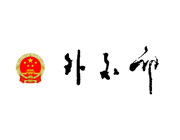


Feature: China carries on medical aid mission in Sudan despite political turbulence, harsh conditions
Source:xinhua 2023-04-10
"I trust the Chinese doctors. I thank the Chinese doctors," Sital-Banat Al-Waqe, 55, said in all smiles, holding in arms her two-week-old granddaughter at the Abu Osher Hospital in central Sudan's Gezira State.
This was the eighth baby in her family who was born at the hands of Chinese doctors in the hospital, explained Al-Waqe, who is from the nearby Al-Salama village. She had given birth to three children in natural births supervised by Chinese doctors since 38 years ago, and her daughter just received the fifth cesarean section conducted successfully by Chinese doctors two weeks ago.
"The Chinese doctors are very skilled, very professional. We have total trust in them," Al-Wage told Xinhua.
Al-Wage and her daughter are among over 8 million Sudanese who have received medical care or treatment from Chinese doctors who have been carrying on the mission to provide medical assistance to this underdeveloped African country since 1972 when China sent its first medical team to Sudan.
A NON-STOP MISSION
Since 1971, China has sent to Sudan a total of 37 medical teams comprising over 1,100 medical personnel, who have treated about 8 million Sudanese patients and conducted more than 200,000 major surgeries, according to official statistics.
The Chinese doctors' mission in Sudan, which has never been interrupted despite the sometimes turbulent situations in the country, has been widely applauded by local people as a show of love and unshakable friendship between the two countries.
The Abu Osher Hospital, which was built on a site that was originally farmland in the early 20th century, has been accommodating Chinese doctors since 1972.
The neonatal mortality rate among newborn babies has been greatly reduced in the Gezira State in the past decades, largely thanks to the help of Chinese doctors, who remain dedicated to their jobs by overcoming many difficulties and challenges posed by the hard conditions and shortage of medical supplies.
For more than half a century, Chinese doctors have been providing health care and medical treatment to local Sudanese in the fields of physical therapy, acupuncture, general surgery, orthopedic surgery, otolaryngology, urology, obstetrics and gynecology, among others.
Liu Wei, the Chinese obstetrics and gynecology doctor who did the fifth cesarean section on Al-Waqe's daughter, said she was proud to be part of the noble mission of helping the Sudanese.
"Through the good efforts of our Chinese doctors from generation to generation during the past 51 years, the incidence rate of maternal infection and neonatal mortality rate have been greatly reduced here," she said.
Aisha Mohammed Elameen, a Sudanese obstetrics doctor who is now working with another Chinese medical team in the China-Sudan Omdurman Friendship Hospital (Omdurman Hospital) near Khartoum, obtained her master's and doctorate degrees at Tongji Medical College of Huazhong University of Science & Technology in Wuhan, capital of central China's Hubei Province.
"I gave birth to my first child in Wuhan with help of my Chinese colleagues, while now, I'm working with my other Chinese colleagues here to deliver babies for Sudanese," Elameen said.
COMPLICATED SURGERIES
Abbaker Abdalla Mahmoud, 61, from the city of El Fasher in North Darfur State, suddenly felt excruciating pain in his belly last November. A tumor of unknown origin was suspected in his abdominal cavity.
After refusal by several hospitals due to the high risk of the complicated surgery, Mahmoud was finally accepted by the Chinese doctors in the Omdurman Hospital, which was constructed with the help of the Chinese government and started operation in 1995.
To ensure the safety of the patient, Chinese doctors in general surgery, anesthesia and related departments made several plans through cooperation with medical experts back in China, to deal with any possible incident during the surgery amid a shortage of some key medical devices and blood supply.
Yang Yi, a Chinese doctor who was in charge of the surgery, recalled that "the blood pressure of the patient sharply dropped from 120 to 60 at the beginning of the surgery, and the tumor was finally found to be the size of a football."
After six hours of operation conducted by Chinese and Sudanese doctors on Dec. 4, 2022, the surgery was completed successfully and the patient quickly recovered.
Two months after the surgery, Mahmoud returned to the hospital to present an appreciation letter to the Chinese medical team, on which he wrote "China" in Chinese characters to express his gratitude.
Since the arrival of the first Chinese medical team in Sudan in 1972, Chinese doctors have done a number of complicated surgeries associated with high risks, including the first heart valve operation in 1986.
PASSING BATON OF SAVING LIVES
"The mission of the Chinese medical teams has achieved great success in Sudan. All the Sudanese people, particularly the people of Gezira State, are very grateful for this mission," said Mohamadain Hussein, former chairman of the Board of Directors of the Abu Osher Hospital.
Hussein stressed that not a single foreign country, other than China, has ever sent a medical team to Sudan in the past decades.
During the past 51 years, Chinese doctors have been passing the baton of saving lives in Sudan from one batch to another, setting an exceptional example for building a China-Africa community of health.
Gao Tianxi, a member of the current 37th Chinese medical team, came to Sudan to follow the steps of his teacher, Kang Quanqing, who worked in Sudan during 1997-1999 and created a tonsil stripper to be used in Sudan.
Kang's teacher, Wang Jiangang, who already passed away, had earlier worked in Sudan twice as a member of the Chinese medical team during 1979-1981 and 1989-1991.
Feng Zhaohui, an ophthalmology chief physician who worked in Sudan between 1999-2001, was inspired by her mother Wu Zhijun, who was a member of the second batch of Chinese doctors sent to Sudan in 1972, when Feng was only 12 years old.
"The Chinese doctors have been doing a great job and we thank them from the bottom of my heart," said Amin Haroun, who has been the head of the Omdurman Hospital for seven years.
"I always remember a Chinese proverb, which says 'don't give one a fish, but teach one how to fish,'" Haroun told Xinhua, referring to the Chinese doctors' teaching and training of Sudanese colleagues with their skills over the years.
"We hope for further cooperation and medical exchange between China and Sudan to upgrade the level and efficiency of our hospital," he added. Enditem
(Zakaria Abdelnaeem Mohamed Hasabo contributed to the story.)
Appendix:




